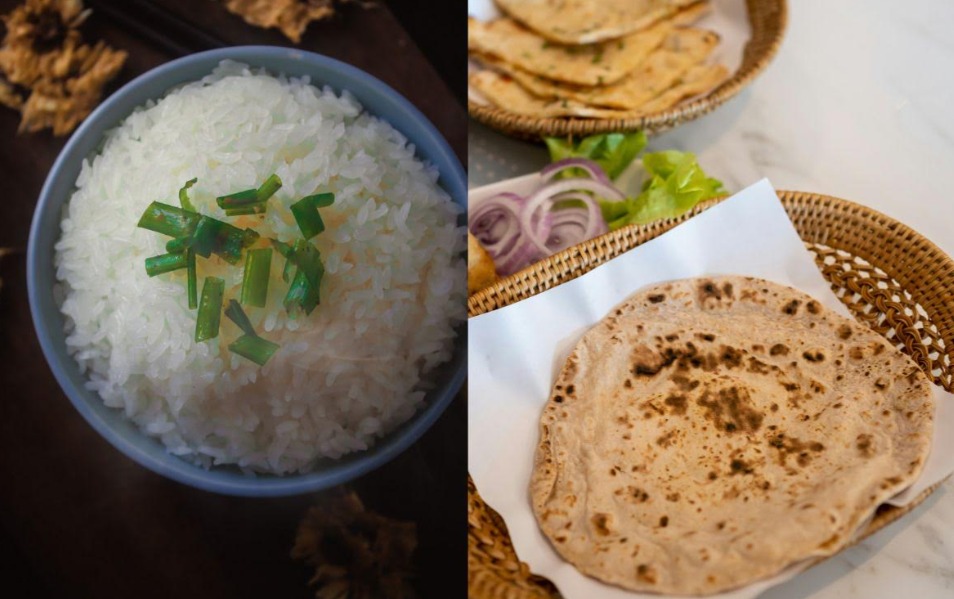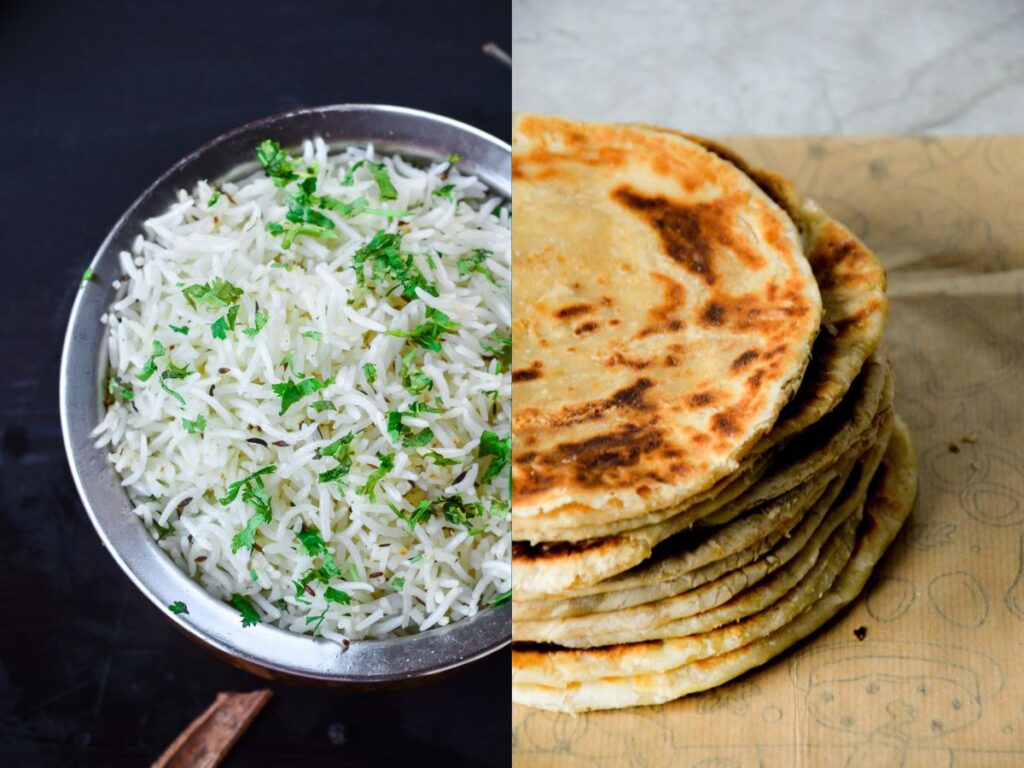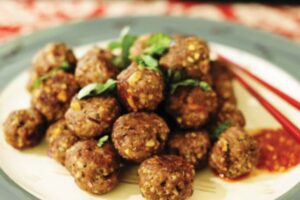Which Is Easier to Digest—Roti or Rice? Here’s What to Know

Which Is Easier to Digest—Roti or Rice? Here’s What to Know
When it comes to everyday meals, many of us wonder which is easier on the stomach, roti or rice. Both are popular staples, but they don’t work the same way once you eat them. To find out which is a healthier choice for digestion, it helps to understand how our body breaks down food and what makes each grain different.
How Digestion Works Inside the Body
Digestion starts the moment you take a bite. The process begins in the mouth, where chewing and saliva start breaking food into smaller pieces. From there, the food travels to the stomach, small intestine, and finally the colon. The main job of digestion is to turn the food you eat into tiny nutrients that give your body energy and help it stay healthy.
This work is done with the help of special proteins called enzymes. For example, an enzyme called amylase breaks down carbohydrates, while another enzyme, lipase, works on fats. Without these enzymes, the body cannot absorb important nutrients from food. But enzymes are not the only helpers. Trillions of tiny gut bacteria also join in, especially in the large intestine. These friendly bacteria break down fiber and even make certain vitamins that keep your digestive system strong.
What Makes Roti and Rice Different
Once you know how digestion works, it’s easier to understand how roti and rice fit into the picture. Roti is a flatbread usually made from whole wheat flour mixed with water. It is rolled into thin circles and cooked on a griddle or flame. Rice, on the other hand, is a grain that is boiled or steamed and often eaten with vegetables or curries.
Both give your body carbohydrates, which provide energy. But they are not the same when it comes to nutrition. Roti made from whole wheat has more fiber, which helps food move smoothly through the digestive system. Rice, especially white rice, is easier to chew and swallow but has less fiber than whole wheat roti. Brown rice has more fiber than white rice, making it closer to roti in nutritional value.

How Cooking and Timing Affect Digestion
The way you cook roti and rice can change how your stomach handles them. If roti or rice is undercooked or overcooked, it can become harder to digest. Cooking them properly helps your enzymes and gut bacteria do their job better. The spices you add also play a role. Cumin, coriander, and fennel seeds are known to help digestion and can be sprinkled into dishes for extra support.
When you eat is just as important as how you cook. Having heavy foods like roti or rice very late at night can slow digestion and cause discomfort. Your body digests food better when you are active, so daytime meals are best. Drinking a lot of water during meals may also dilute digestive juices, so it’s wiser to drink before or after eating.
Choosing What Works for You
Both roti and rice can have benefits and drawbacks when eaten at night. Whole wheat or multigrain roti is rich in dietary fibre, which slows digestion and helps you stay full and energized for longer. Having roti at dinner can be especially helpful for people who do physically demanding activities in the evening, and for others it can help keep blood sugar levels steady. However, eating too many rotis, especially for those with a sensitive stomach, can cause bloating, discomfort before bed, and even disturb sleep.
Rice, on the other hand, is lower in fibre and breaks down more quickly in the stomach, which can actually support better sleep. It also feels lighter and can help reduce the chances of consuming excess calories at night. But eating large amounts of rice late in the evening may still lead to digestive stress and other health concerns.
In the end, neither roti nor rice is the “wrong” food. What matters is how you cook, when you eat, and how your body responds. By paying attention to these details, you can enjoy either one while keeping your stomach happy and healthy.
Disclaimer: This article is for general information only and is not a substitute for professional medical advice. Individual digestion and dietary needs can vary. Please consult a doctor or a registered dietitian for guidance tailored to your health.












